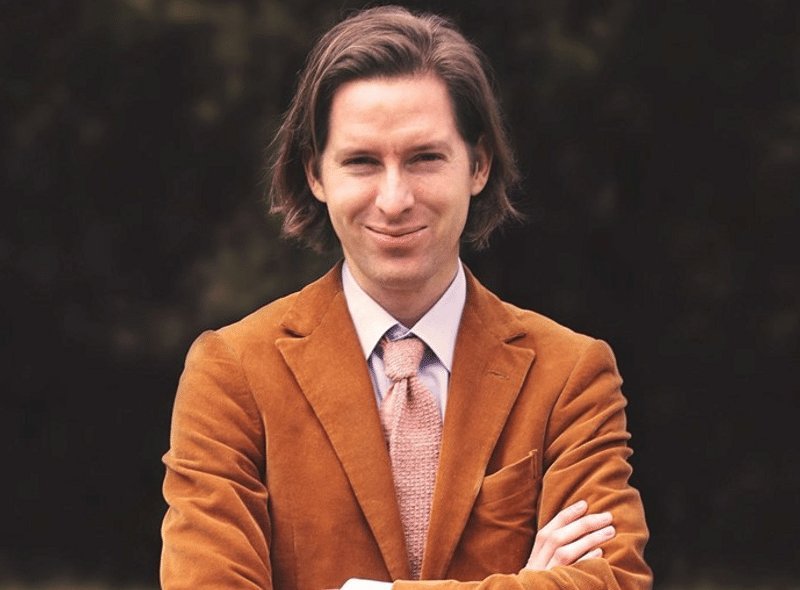The iconic filmmaker Wes Anderson continues to show his admiration for one of his favourite childhood authors, Roald Dahl, taking on the adaptations of several of his short stories, including The Wonderful Life of Henry Sugar, marking his first return to Dahl since the release of Fantastic Mr. Fox back in 2009.
Dahl had been a profound source of inspiration for Anderson from way back in his childhood, and the Welsh writer continues to be considered one of the most significant children’s storytellers of all time, having written the true classics James and the Giant Peach, Charlie and the Chocolate Factory, Matilda and The BFG, many of which have received movie adaptations.
His stories are often defined by adults being the villains of children, a dark overarching mood and a lack of sentimentality, although they also put forth the notion that an unwavering kindness exists in children that is often corrupted by the transition into adulthood, a motif that’s also present in the works of Wes Anderson.
While Dahl was certainly celebrated, he was equally as controversial, particularly concerning his seemingly antisemitic views and opinions. When reviewing Tony Clifton’s God Cried book, he claimed that Jews were a “race of people” who had “switched so rapidly from victims to barbarous murderers” during the 1982 Lebanon War.
The author followed up with his review by telling New Statesmen, “There’s a trait in the Jewish character that does provoke animosity; maybe it’s a kind of lack of generosity towards non-Jews. I mean, there is always a reason why anti-anything crops up anywhere; even a stinker like Hitler didn’t just pick on them for no reason.”
There were many instances of Dahl’s antisemitism throughout his career, including in his works – once calling a character “a filthy old Syrian Jewess” – but it seemed like his racism did not end there. Several figures pointed out Dahl’s skewed representation of African black people in Charlie and the Chocolate Factory, including fellow children’s author Eleanor Cameron.
Cameron had claimed that the African-influence Oompa-Loompas had “never been given the opportunity of any life outside of the chocolate factory”, with clear links to slavery and pernicious racial stereotypes. Dahl responded, claiming that the criticism was undeserved and “monstrous”.
Dahl’s representation of sex and gender also became an issue. Take the misogyny of The Witches, where the writer’s favourite kind of villains – fat ugly women – were once again at the forefront.
Indeed, it’s fair to say that Dahl, both within his work and in his personal life, certainly had a dark side.
Is this a side that Anderson is willing to ignore in order to create his own works? It can sometimes appear so. After all, the Royal Mint had decided not to make a coin to commemorate the centenary of Dahl’s birth after his antisemitic views resurfaced, and this was something that even the writer’s family, who issued an apology for his previous words, were willing to recognise and admit.
Earlier this year, when Puffin announced that they planned to edit out any offensive language from Dahl’s work, Anderson responded in defiance. Appearing at the Venice Film Festival, the director said, “I’m probably the worst person to ask about this because if you ask me if Renoir should be allowed to touch up one of his pictures, I would say no. It’s done.”
He added, “I don’t even want the artist to modify their work. I understand the motivation for it, but I’m in the school where when the piece of work is done, we participate in it. We know it. So I think when it’s done, it’s done. And certainly, no one who is not an author should be modifying somebody’s book. He’s dead.”
So Anderson finds himself in the difficult situation of justifying the cruelty and unkindness of one of his heroes. Considering that Dahl is indeed an author so close to the director’s heart, it’s at least slightly understandable why he would choose to accept such offensive language rather than condemn it.
After all, perhaps original texts should not be altered so we can learn from the damaging role that words can play. But by essentially rejecting Puffin’s decision to censor Dahl’s stories, Anderson is burying his head in the sand and ignoring the true nature of the author’s character, something that, as a storyteller himself, the director should be comfortable with confronting.
Sure, Anderson can wrap Dahl’s stories up in his typically cutesy, twee and image-perfect style and have his characters never utter an offensive word, but without actually directly addressing the fact that his favourite childhood author was quite a bad person, then Anderson’s works themselves perhaps ought to be criticised in the process.
There’s a responsibility on any artist to confront the wrongdoings of the past, particularly when that given artist adapts the works of another. With Dahl’s incredibly shady past already affecting the decisions of major publishing companies and the Royal Mint, the least Anderson could do is say, ‘Yes, Roald Dahl had a dark side, and his words negatively affected so many, but I hope that through my own films, I can correct that course of offence.’ But as of yet, those words are yet to come.
